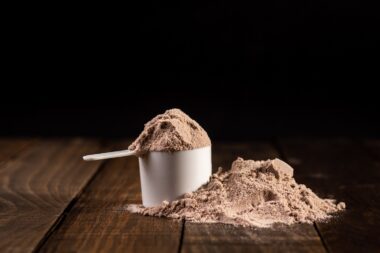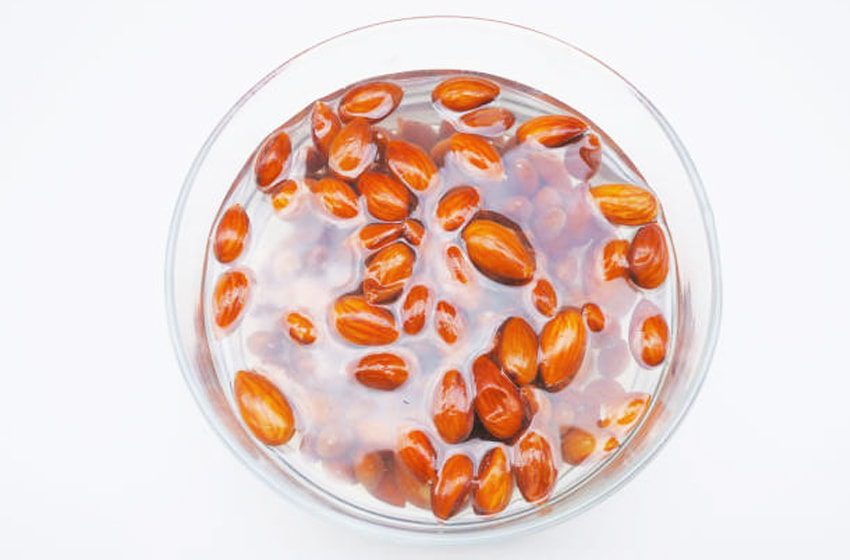Nuts and seeds are one of the most nutrient-dense snacks available to us. They are a great source of protein, healthy fats, fibers, vitamins, and minerals, and we can easily consume them on a daily basis. But just like legumes and grains, they also contain substances that interfere with the absorption of nutrients by our bodies.
We, humans, have been eating seeds, nuts, legumes, and grains for thousands of years. Earlier, people used to soak these foods before cooking or eating them. But, we lost this important tradition somewhere along the way. If you haven’t been soaking your nuts and seeds, then now is a good time to start.
Why Soak Your Nuts, Seeds, and Grains:
Soaking nuts, seeds, and grains in water reduces the anti-nutrient content and makes them more beneficial for our bodies. This simple process of soaking not only increases their nutrient values but also makes them more digestible.
All the raw nuts, seeds, and grains have anti-nutrients in them. These anti-nutrients are phytic acids, tannins, and other toxic substances that are not considered suitable for consumption.
Phytic acid is biologically necessary for the plants, as it helps the nuts and seeds survive until proper growing conditions are present.
Though these enzyme inhibitors are highly beneficial for plants’ growth, they may cause nutrient deficiencies and digestive problems in humans. Enzyme inhibitors prevent the absorption of minerals such as iron, calcium, and zinc by binding to them before our body can absorb them.
Hence, we should always soak nuts, seeds, and legumes before consuming them.
Benefits of Soaking Nuts, Seeds, and Grains:
- Increases Nutrient Value: Soaking nuts, seeds, and grains unlock their nutrient value to their full potential. It increases the amounts of vitamins, minerals, and protein, and encourages the production of healthy enzymes in them.
- Improves Digestion: Soaking reduces phytic acid and tannins, the enzymes which block the absorption of nutrients in the body. It breaks down the gluten and makes the nutrients readily available for digestion and absorption.
- Reduces Preparation Time: Soaked grains and legumes cook more quickly. The longer you soak them, the less time they will need to cook. It is important not to oversoak the legumes, to prevent them from starting to ferment. Always rinse the legumes before cooking.
- Enhances Flavour: Soaking softens the food. Hydrated nuts, seeds, and legumes are easier to blend, more nutritious, and richer in taste and texture than unsoaked ones.
Here’s an informative video to help you understand more:
Also Read: Health Benefits Of Moringa: Why It Is Called Tree Of Miracles
How to Soak Nuts and Seeds:
Place the nuts and seeds in a medium bowl and fill it with water, making sure that all the nuts and seeds are completely submerged. Add a little salt to it and stir it until it dissolves. Let them soak overnight (or approx 6-8 hours). Drain the water and let them dehydrate. The dehydrating time can vary for different nuts and seeds, but the dehydrating process is necessary before consumption.
How to Soak Grains and Legumes:
Grains (Rice, Millet, Quinoa, and more): Place 2 cups of grain into a mixing bowl. Fill the bowl with 2 cups of warm water. Leave the bowl at room temperature for 6-7 hours. Drain and rinse the water, and then cook the grain as usual.
Legumes (Peas, Lentils, and Beans): Place 2 cups of grain into a mixing bowl. Fill the bowl with 2 cups of warm water. Leave the bowl at room temperature for at least 7 hours. Drain and rinse the water, and then cook the legumes in a slow cooker. Avoid using the pressure cooker as extremely high pressure and temperature will denature the protein and other nutrients from the legumes.
Are you soaking your nuts and seeds? Which technique do you use? Either way, don’t forget to reap the benefits of soaking nuts, seeds, and grains before eating or cooking.

Neha Verma is a diet-conscious food blogger and a spiritual seeker. She likes to share healthy food recipes with pictures on her Instagram. In her free time, you can find her reading books, singing songs or making utterly delicious dishes. Check out her profile @ instagram.com/nutriifyme





































